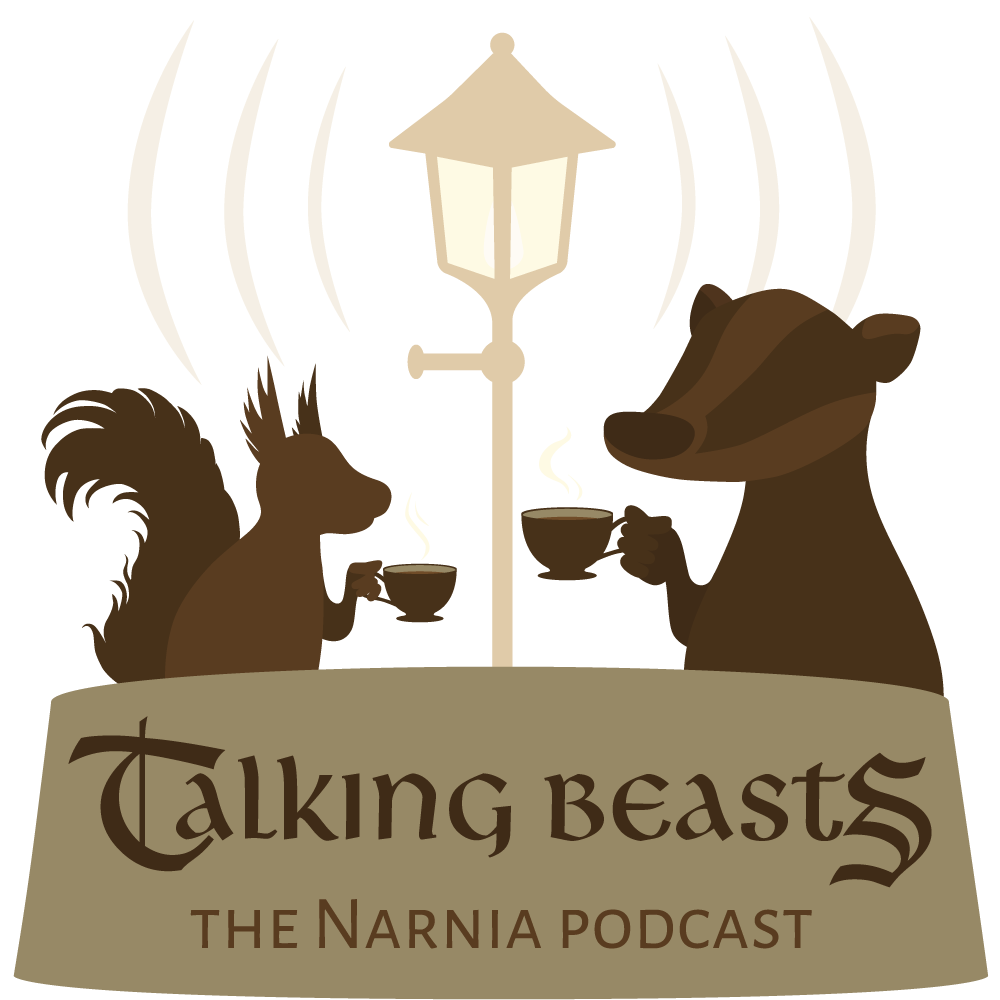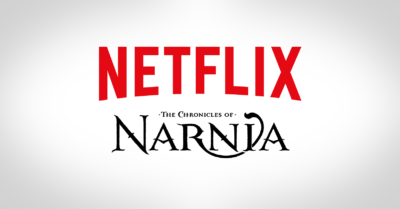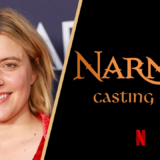NZ Radio Station Interviews Michael Apted
INTERVIEW WITH MICHAEL APTED 11th July 2007
– BY ROB HOLDING – New Zealand’s Rhema (Christian radio network)
Listen to the interview right here on NarniaWeb:
Rob: Michael Apted is best known as the director of the new movie Amazing Grace. He joins us on the phone. Michael, welcome to the programme.
Michael: Thank you very much.
Rob: Michael, why did you pick Amazing Grace to direct?
M: It started in a weird way, because I’d been looking for ages to find a political story to make a film about, something that I thought could shine a different sort of light on politics, and present politics as something, you know, worthwhile, and something that could achieve things, and I’d never really been able to find a subject. I was disappointed with the cynicism that surrounded politics, although I could fully understand why people felt that.
But then this script came along, and this script came more to me as a biopic, and it was very much more weighted in terms of Wilberforce’s faith issue, than necessarily the politics or the anti-slavery. And so I persuaded them to slightly tweak it a bit and put the politics in the middle of it. I thought that would also very much dramatise the issues of faith and also make Wilberforce much more active character in the story and also allow us to play around with time a bit and not just tell a life from beginning to end, which can be very hard to keep the energy in a film going like that.
R: And a little more acceptable to the non-Christians, because I know the early scripts were very very Christian focused, weren’t they?
M: Yes, that’s true. I thought it’s such a great story, and I was so interested in his spirituality, because I think that’s one of the disasters of the modern world, that religion and politics have become so disconnected. You know, where are the Mandelas and the Martin Luther Kings and the Gandhis and all this sort of stuff. People either use religion as their political basis or they have no kind of spiritual sense at all in their political life; and here was a character who managed to live in both worlds to great effect. So I did want to find a wider audience than just say a faith-based audience to tell this story.
R: How hard is it for you – you call yourself an agnostic? That’s true, is it?
M: Yes.
R: So how hard is it for you to actually bring out the full Christian side of the story?
M: It’s not hard at all. I mean, I recognise it and I admire it, and I thought his was a life of great courage and great will, what he did. It isn’t difficult at all for me to understand that and to celebrate it.
But I do feel as a storyteller that I want to get more than that into the film. And that’s very important, and the most important thing to some people. But I wanted to get a kind of broader view of the character and a broader view of the world than that. But it isn’t difficult to express that at all.
R: loan Gruffudd must have been a marvellous actor to direct – he’s had experience in that realm with the Poldark series, hasn’t he?
M: Yes, he has. I was lucky with him, because it was kind of essential to me that the main characters in the film were young, it seemed to me a genuine Camelot story, like a Kennedy story if you will, young people with great spirit taking on the establishment. And to do that they really had to cast it young. But it’s hard to find young actors who have any box office heat, but loan does have – with the Fantastic Four. So that made it easier for me to convince the studio to cast it young.
R: Of course when you talk about the Camelot side, I’m sitting there going “Where do I recognise this guy from?” – of course he was Lancelot in King Arthur.
M: Yeah, there you go. [laugh]
R: What is it about the Wilberforce story that personally inspires you?
M: There’s tons of it really, but I suppose at the end of the day how I look at my life is, would I have the will, would I have the courage, to just stick at something in the way he did, and just simply not give up on it, and to be so convinced of the moral right of what he was doing that he just wouldn’t let it alone, although everybody was telling him to leave it alone, and he wasn’t getting anywhere with him. I think he’s a marvellous role model for anybody
R: The subject of slavery comes up, and there’s actually more slavery, apparently, in the world today than there was 200 years ago.
M: Yeah, frightening isn’t it?
R: Do you think people are going to get that message, out of the movie? That they need to do something?
M: Not get it out of the film, but they get it, I think, out of the press and the publicity. There was a thing called Amazing Change, which is a big outreach that the American distributors did about the film. They were saying to people, don’t watch this film and think slavery’s been dealt with; it hasn’t. Slavery is never dealt with; slavery’s always with us, in every civilisation there’s ever been. And it’s with us now, and be alive to it, be aware to it, sort of educate yourself to what’s going on, and then maybe in a tiny way you can help make things better. So that’s really the follow-up of the film, the press on the film, the writing about the film, that message isn’t really contained within the film.
R: You have had a varied career as far as directing goes; what would be your favourite movie to direct?
M: Oh I don’t know, I just like to- I suppose the next one is a favourite one always. I tend not to look backwards, I tend to keep ploughing on. There are films that are close to my heart, and the “Up” films are very close to me, Coal Miner’s Daughter is very close to me. But they’re all in a sense part of me. I tend not to go back and look at them. I tend to try and figure out what’s going on next rather than what’s come before.
R: Are we coming of an age now, where we look at directors? Maybe it’s because I’m now in my forties that when I’m looking at a movie I’m not necessarily looking at who the lead actor is, I’m looking at the director, going “Do I want to watch this movie? Oh look, he directed it, yeah…”
M: I entirely approve of that. I don’t think there’s enough acknowledgement of what directors do, frankly. And we know, especially you who see a lot of movies, the difference between a well-directed and poorly-directed film. I think it’s great you think like that and that you pay attention to that. One of my other jobs is I’m President of the Directors’ Guild. One of the things we try and do is we try and put the director’s role more in front of people, so people know exactly how films get made, how films get put together, and whose vision has to guide it.
R: Well, that’s an interesting thing because you’re coming up for the Voyage of the Dawn Treader, where the way I read it, you’re kind of having to jump onto Andrew Adamson’s vision in some ways.
M: In a way, but not really. What’s fascinating about this particular franchise is how different all the stories are.
You know I’ve got two of the children, the two youngest, in my story; there’s no element of Narnia in it at all. This is a journey that Caspian the Tenth is making into the islands, outside to the east of Narnia. So it’s interesting, it’s a whole different tone to the other things.
Of course, Andrew’s mark is all over the franchise, but this is a completely really different story with a different tone.
So it’s not so much like doing, as I did, a Bond, where you’re really taking the baton and then handing it on. This is a little bit different – you know, it’s good fun!
R: I was quite intrigued to see that Ben Barnes, who you’re directing in the next movie, in Dawn Treader, has starred in a movie called Stardust, which was your second movie too, wasn’t it?
M: Yeah, that’s right, that’s right!
R: So it’s amazing how things go. Did you ever think about the fact that both Amazing Grace and Dawn Treader have little Christian themes in there – maybe God’s trying to get your attention ?
M: [laugh] Well, it is coincidental, – but you know, they’re both good material, they’re both interesting material. They both present a challenge, for me to put the material out there in an even handed and interesting way; and not to be in a sense narrow- minded about it, either narrow-minded in a faith way or narrow-minded in an agnostic way. I have to open my heart to what the stories are about.
R: And tell the story so that people enjoy it.
M: Yeah.
R: And get a message?
M: Well, there’s lots of messages really, out of Amazing Grace. I’m not so clear about what message will come out of The Dawn Treader as yet – it’s early days for us here. But there are lots of things that come out of Amazing Grace, a lot of resonance, I think, of politics today, of what people are saying to people.
In politics in America we’re told, “If you don’t like what we do, then you’re being seditious” – which is what Pitt was saying to Wilberforce. “And the fact is, you can’t oppose slavery because it’s going to wreck the economy”, like we’re saying “If we don’t invade Iraq and protect American oil then we’ll wreck our economy.” All of this stuff; it was balderdash then and it’s balderdash now.
R: You are a bit of an “Englishman In New York” – as Sting sings the song.
M: [laughs]
R: How do you think the Americans are going to find the story of somebody that they’ve never really heard of?
M: Well they did very well there. Frankly, it did better than it did in England, where people know about this stuff. So what do you make of that? It did extremely well, and exceeded all our expectations. And people really responded to it very favourably. So that was a very pleasant surprise.
R: A well-made movie is a well-made movie, isn’t it?!
M: You would hope. But sometimes that’s not the case.
R: No. I’ve just been to see Transformers, took my two boys to see Transformers, (for their sake not for my sake). It’s not the sort of …I’d rather sit down and watch an Amazing Grace, which tells a story, than watch just fun and flam. But that’s the way the world goes at the moment; I mean the top movies..
M: Did your boys enjoy Transformers?
R: Yeah, hopefully they’ll enjoy Amazing Grace as well.
M: [laughing] Good, good, well put!
R: Well, thank you so much for your time, and God bless you richly.
M: Thank you and good luck to you all. Very good to talk to you.
We’d like to say a big thank you to Rob at New Zealand’s Rhema for letting us post the interview, as well as a big thanks to Coracle for transcribing the interview for us.
Podcast: Play in new window | Embed






